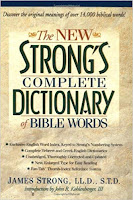Sample Reftagger mouse hover functionality 2 Cor. 3:18 notice the default translation is NLT
2 Cor. 3:18(DAR)
2 Cor. 3:18(ESV)
2 Cor. 3:18(GW)
2 Cor. 3:18(HCSB)
2 Cor. 3:18(KJV)
2 Cor. 3:18(LEB)
2 Cor. 3:18(MESSAGE)
2 Cor. 3:18(NASB)
2 Cor. 3:18(NCV)
2 Cor. 3:18(NIV)
2 Cor. 3:18(NIRV)
2 Cor. 3:18(NLT)
2 Cor. 3:18(YLT)
www.logos.com/reftagger MAPPING TABLE
"ASV" />ASV
"DAR" />DARBY
"ESV" />ESV
"GW" />GW
"HCSB" />HCSB
"KJV" />KJV
"LEB" />LEB
"MESSAGE" />MESSAGE
"NASB" />NASB
"NCV" />NCV
"NIV" />NIV
"NIRV" />NIRV
"NKJV" />NKJV
"NLT" />NLT
"TNIV" />TNIV
"YLT" />YLT
In the book "Pilgrims Progress, the above verse is referenced in this block quote:
So I saw that when they awoke, they addressed themselves to go up to the city. But, as I said, the reflection of the sun upon the city (for the city was pure gold, Rev. 21:18,) was so extremely glorious, that they could not as yet with open face behold it, but through an instrument made for that purpose. 2 Cor. 3:18. So I saw, that as they went on, there met them two men in raiment that shone like gold, also their faces shone as the light.
These men asked the pilgrims whence they came; and they told them. They also asked them where they had lodged, what difficulties and dangers, what comforts and pleasures, they had met with in the way; and they told them. Then said the men that met them, You have but two difficulties more to meet with, and then you are in the City.
Christian then and his companion asked the men to go along with them: so they told them that they would; But, said they, you must obtain it by your own faith. So I saw in my dream, that they went on together till they came in sight of the gate.[1]
[1] Bunyan, J. (1995). The pilgrim’s progress: From this world to that which is to come. Oak Harbor, WA: Logos Research Systems, Inc.
2 Cor. 3:18(KJV)
2 Cor. 3:18(LEB)
2 Cor. 3:18(MESSAGE)
2 Cor. 3:18(NASB)
2 Cor. 3:18(NCV)
2 Cor. 3:18(NIV)
2 Cor. 3:18(NIRV)
2 Cor. 3:18(NLT)
2 Cor. 3:18(YLT)
www.logos.com/reftagger MAPPING TABLE
"ASV" />ASV
"DAR" />DARBY
"ESV" />ESV
"GW" />GW
"HCSB" />HCSB
"KJV" />KJV
"LEB" />LEB
"MESSAGE" />MESSAGE
"NASB" />NASB
"NCV" />NCV
"NIV" />NIV
"NIRV" />NIRV
"NKJV" />NKJV
"NLT" />NLT
"TNIV" />TNIV
"YLT" />YLT
In the book "Pilgrims Progress, the above verse is referenced in this block quote:
So I saw that when they awoke, they addressed themselves to go up to the city. But, as I said, the reflection of the sun upon the city (for the city was pure gold, Rev. 21:18,) was so extremely glorious, that they could not as yet with open face behold it, but through an instrument made for that purpose. 2 Cor. 3:18. So I saw, that as they went on, there met them two men in raiment that shone like gold, also their faces shone as the light.
These men asked the pilgrims whence they came; and they told them. They also asked them where they had lodged, what difficulties and dangers, what comforts and pleasures, they had met with in the way; and they told them. Then said the men that met them, You have but two difficulties more to meet with, and then you are in the City.
Christian then and his companion asked the men to go along with them: so they told them that they would; But, said they, you must obtain it by your own faith. So I saw in my dream, that they went on together till they came in sight of the gate.[1]
[1] Bunyan, J. (1995). The pilgrim’s progress: From this world to that which is to come. Oak Harbor, WA: Logos Research Systems, Inc.
Brought to you by Rick Livermore https://yachtsman220.blogspot.com/
a fan of https://www.sunvalleycc.com/
Sun Valley C C 20271 E Rittenhouse Rd, Queen Creek, AZ 85142, USA
Celebrate Recovery
Monday nights in Tempe,
Thursday nights in Gilbert,
Friday nights in Queen Creek
|







